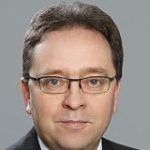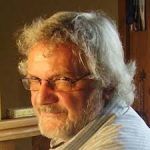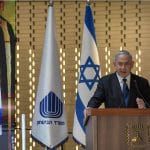Playing politics with chemical weapons? The UK’s initiative on chemical weapons accountability.
By Oliver Meier, Ralf Trapp | June 20, 2018

The United Kingdom has tabled a controversial proposal to task the Organisation for the Prohibition of Chemical Weapons (OPCW) with identifying those responsible for chemical weapons attacks in Syria. UK Foreign Secretary Boris Johnson recently argued on Twitter that “with proven technical expertise on chemical weapons, the OPCW is the right body to study who is behind an attack” and announced that “the UK has tabled [a] draft decision aimed at strengthening the ban on chemical weapons.” According to Johnson, his government proposes that “the OPCW begins attributing responsibility for chemical weapons attacks in Syria.” Johnson called on “all right-thinking states to come together” to reaffirm and defend the ban on chemical weapons and to strengthen the OPCW.
The UK proposal will be debated at a Special Session of the Conference of the States Parties to the Chemical Weapons Convention (CWC) on June 26-28 in The Hague. The United Kingdom and 10 other countries requested the meeting “to consider how best to respond collectively” to the threats of development, production, and use of chemical weapons by state and non-state actors and “to unite in a reaffirmation of the international prohibition against chemical weapons use.” Shortly after the director-general, Ahmet Ücümzu, had distributed the request to all 193 states parties, he confirmed that the necessary one-third (i.e. more than 64 states parties) had supported the request to hold the meeting.
The push for an extended role of the OPCW, which is the technical body in charge of overseeing the implementation of the chemical weapons ban, comes against the background of continuing use of chemical weapons. In Syria, chemical weapons continue to be employed in the ongoing armed conflict, killing combatants and civilians alike, including women and children. Only recently, the OPCW confirmed that sarin has very likely been used on March 24, 2017 in Ltamenah province. Elsewhere, modern nerve agents have also been used: in February 2017 in Kuala Lumpur, Malaysia to assassinate the half-brother of North Korean ruler Kim Jong-un and in March 2018 in Salisbury, United Kingdom in a failed attempt to kill former Russian spy Sergei Skripal and his daughter Yulia.
Independent technical bodies like the OPCW can provide facts. Asking them to make judgements about perpetrators—judgements that are ultimately political—runs the risk of undermining their independence. The international community should follow a deliberate course that aims to achieve consensus on how those actors who use chemical weapons can be called to account. The guiding principle should be to avoid any harm to the CWC, which remains the solid foundation of the norm against chemical weapons.
The accountability gap. Current investigations into chemical weapons attacks can only begin to tackle the problem of accountability. Human rights mechanisms have attempted to arrive at conclusions about who was behind the use chemical weapons, but they typically use a lower standard of proof than investigations in the context of arms control or criminal law. Procedures for investigations of the alleged use of chemical weapons under the CWC and the so-called UN Secretary-General’s Mechanism to investigate allegations of the use of chemical, biological, or toxin weapons have authority to collect facts that may help establishing the origin of a chemical weapon use. But such data by itself may not suffice to establish culpability of individuals or organizations. And the CWC’s challenge inspection mechanism has yet to be invoked by any state party.
In 2014, the OPCW’s director-general was charged with clarifying whether chemical weapons are being used in Syria. The OPCW’s so-called Fact Finding Mission has so far investigated 83 alleged chemical attacks and confirmed their use in 14 cases. But the mission’s focus is “to establish facts surrounding allegations of the use of toxic chemicals, reportedly chlorine, for hostile purposes in the Syrian Arab Republic.” It is not tasked with identifying the perpetrators.
In the case of the Syrian armed conflict, attribution was the task of the Joint Investigative Mechanism (JIM), a collaborative effort of the OPCW and the United Nations. In 2015, the UN Security Council Resolution created the JIM with the assignment of identifying the “individuals, entities, groups, or governments who were perpetrators, organisers, sponsors or otherwise involved in the use of chemical weapons.”
However, the JIM’s mandate ended in December 2017, after Russia, in the Security Council, vetoed an extension of the mechanism’s work. Moscow charged the body with having acted in an unprofessional and subjective manner. In reality, Russia was unhappy with the JIM’s findings that Syrian government bodies were responsible for at least four chemical weapons attacks, including the April 4, 2017 attack on Khan Sheykoun, which killed more than 80 people, including many children. The JIM also found that the Islamic State had used chemical weapons in at least two instances.
So there is currently no international, independent, impartial mechanism specifically mandated to investigate who is behind chemical weapons attacks.
Even if it were possible to identify the perpetrators, the road to an international criminal investigation is blocked. The use of chemical weapons is a war crime under the statute of the International Criminal Court. But Syria is not a signatory of the Rome statutes, and referral to the ICC therefore requires a Security Council decision, which Russia won’t agree to.
Polarization, politicization, and other pitfalls. The UK and its partners want to fill this accountability gap by putting the OPCW in charge not only of investigating whether chemical weapons have been used but also who was behind these attacks. To be sure, identifying those responsible for the attacks is of paramount importance for upholding the norm against chemical weapons. As long as perpetrators in Syria (and elsewhere) do not fear being held accountable, they may feel encouraged to continue to commit their crimes. Impunity can also encourage copycats. There are many conflicts taking place today in which Syria may be perceived as an example of “successful” use of chemical weapons.
Yet, giving the OPCW’s Technical Secretariat and its head, the director-general, responsibility for identifying the perpetrators also entails serious risks, including possible damage to the OPCW and to the convention itself.
First, the initiative could further polarize the CWC membership. For good or bad, the search for new mechanisms to attribute responsibility for chemical weapons use cannot be separated from the conflict between Russia and the West. Thus, the request to convene a Special Conference of States Parties to the CWC dovetails with the “International Partnership against Impunity for the Use of Chemical Weapons” that France initiated in January 2018. The participants, a group of about 30 mostly Western states, vow to cooperate to hold those accountable who are responsible for chemical weapons use. Participants recently supported the holding of the special conference “to work together to strengthen the ability of the OPCW to promote the implementation of the convention, including exploring options for attributing responsibility for chemical weapons attacks.” The Australia Group, which harmonizes export control regulations of relevant dual-use technology among 42 mostly Western states, likewise has endorsed the special conference.
So far, Western states have held the moral high ground because Russia has so blatantly abused the OPCW by shielding its ally, Syria. But pushing for this potentially divisive initiative may open Western states to allegations of playing politics with chemical weapons vis-à-vis Moscow. If indeed the new initiative is aimed only at identifying the perpetrators of chemical weapons attacks in Syria, but not elsewhere, this would further strengthen the hand of those who want to portray this as a ploy of the West. Russia and its ally Iran have already objected to the special conference, which they see as unnecessary.
Second, there is a risk of politicizing the OPCW, which so far has been able to keep to a technical role and has largely managed to avoid exposing its staff and the technical secretariat to the poisonous debates around the use of chemical weapons and accusations of a lack of integrity. Giving the director-general a role in attributing responsibility would likely expose the head of the organization, and the members of the Technical Secretariat who would be involved in investigations into responsibility, to constant accusations of being partial. Also, there will be change at the top of the OPCW in mid-July with Spanish Ambassador Fernando Arias taking over from Turkish diplomat Ahmet Üzümcü. The outgoing head seems to be open to expanding the OPCW’s role. In a London speech in May, Üzümcü argued that “[t]he notion that the OPCW does not go into attribution needs to be reconsidered” and maintained that “[t]here is nothing in the [c]onvention that precludes such a role for the [o]rganisation”. But it is unclear whether the incoming director-general has been brought into the discussion or would take a similar position. In any case, a new role for the OPCW in attribution would be heavy political baggage for any new OPCW head.
Third, there are legal uncertainties. Giving the director-general a role in attributing individual or collective responsibility for non-compliance amounts to a substantive change of the convention, which in fact could be seen as a de facto amendment of the treaty. A special conference, however, is not the adequate mechanism to pursue amendments, which requires mastering tougher legal hurdles.
Fourth, there is therefore a risk that the initiative could fall flat. Any decision resulting in substantive changes to the operation of the convention—and an expanded role of the OPCW and its director-general in attribution would certainly amount to such an alteration—would require consensus. Should unanimity among states parties turn out to be impossible, two-thirds of those “present and voting” at the conference could nevertheless sanction such a decision. Given the severe implications for the operation of the CWC, such a vote could fail. Under the rules of the OPCW, a vote might also pass despite a significant number of participants abstaining. This is exactly what happened when a special conference in 2002 dismissed the first OPCW director-general, José Bustani, by a majority vote of 48 to 7–but with 43 abstentions. Such a close decision would create the necessary legal authority for the director-general to name the perpetrators of chemical weapons attacks. But it is unlikely that such a narrow vote would also provide sufficient legitimacy for such a mandate to be universally accepted within the OPCW and in the larger international community. Either outcome—failure or a narrow two-thirds majority—could reinforce the argument that the CWC is not an effective instrument in dealing with the global threat of chemical weapons. Further fragmentation of the regime could be the unintended consequence.
Going the extra mile on attribution. One way to reduce the risk of playing politics with chemical weapons is to use the June conference not to force the issue, but as a starting point for discussions on new ways to identify and hold accountable those responsible for chemical weapons attacks. The director-general could be asked to submit to the next regular session of the conference of states parties a proposal on how to establish an effective and impartial investigative mechanism. He could be invited to consult widely between now and November, when CWC members will convene for the next regular conference (November 19-20, 2018) and for the fourth CWC review conference, immediately thereafter. The Open Ended Working Group of States Parties currently preparing the review conference could perhaps provide a framework for channeling the results of these discussions into the review conference. Such a course could be combined with a strong statement by CWC states parties to reiterate their condemnation of any use of chemical weapons by states and non-state actors.
This would give CWC members the opportunity to discuss ways to move forward together. Should Russia and its allies continue to obstruct or instrumentalize such proposals, CWC states parties could still vote on new mechanisms at the November conference. At least then, they could rightly claim that they have gone the extra mile to find an inclusive solution. As urgent as it is to end the current situation, in which chemical weapons are employed with impunity, every possible care must be taken that moves towards new instruments do not inadvertently undermine existing norms and institutions.
The sobering experience of the past is that verification in non-cooperative environments can only be successful if the inspectors have the political backing of the great powers, and particularly the permanent members of the UN Security Council. Only when the international community as a whole backs multilateral monitoring mechanisms can they fulfill their important but at times also controversial and dangerous tasks. Independent technical bodies like the OPCW can provide the facts. But tasking them with arriving at judgements that are ultimately political runs the risk of undermining their independence.
Together, we make the world safer.
The Bulletin elevates expert voices above the noise. But as an independent nonprofit organization, our operations depend on the support of readers like you. Help us continue to deliver quality journalism that holds leaders accountable. Your support of our work at any level is important. In return, we promise our coverage will be understandable, influential, vigilant, solution-oriented, and fair-minded. Together we can make a difference.
Topics: Uncategorized















